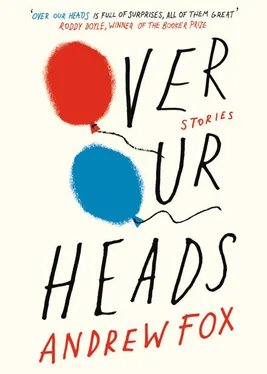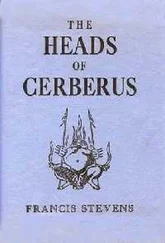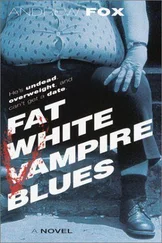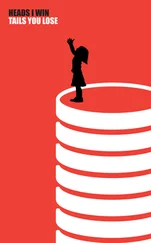‘It’s an institution,’ I tell him, but I’m distracted with my phone: no calls.
The hotel, according to Randy, dates back to the beginning of the last century. Its first customers were the owners of the lumberyards upriver, whose patronage paid for canopied beds and brick hearths tall enough to stand in, whose sons held lavish dinners throughout Prohibition behind the laundry room’s trick door. During the Second World War, naval officers billeted at the university marched down North King Street three times daily for meals in the tavern. Postwar, travelling salesmen staged product demonstrations in their rooms until the yards all closed and there was no one left to sell to.
It was to the hotel’s restaurant that I took my parents for cobb salads and whiskey sours on the weekend of freshman orientation. My mother wore a purple sweater and waterproof eye make-up, my father a ludicrous white linen jacket and a wide smile. And it was there too that I took Ashley two years later for thick steaks and strong cocktails after exams I knew I’d failed. I held her hand tightly across the table, listened to her talk about our future. Her voice was high and she could hardly sit still. That was before our sex got angry, our conversations short.
Now, I’m awake most mornings before my alarm and staring at the plastic stars constellated on Luis’s living-room ceiling. I fold the Star Wars blanket marked with his childhood piss and work the coffee-maker that dominates the countertop in the kitchenette. Then we’re in the car, Luis slurping coffee from a travel mug and singing along to the country station, or the oldies station. We pull into the parking lot and punch our time cards at the door. We nod hello to the cleaning ladies hollering down their phones and to the overnight room-service guys comparing tips. And then we’re in the elevator, on the floors, in the rooms, changing light bulbs or mopping tiles or rewiring the busted cable. Luis and I work well together. We are capable of talking about nothing to pass the time. But the major advantage of our kind of work is the opportunity it provides for silence.
The old armoires are cheap plywood boxes with particle-board backs and doors of imitation oak. I’ve gotten used to fielding complaints from guests about sticking drawers or misaligned hinges or splintered innards that shred cashmere sweaters. I lower them one by one on to a hand truck. Luis steers and I hold them steady. We ride the elevator to the roof, where, this past summer, we used to sneak away for smokes and feel the sun dry the sweat from our backs. But it’s winter now, the air is as sharp as teeth and everything is the same iron grey as the sky. Luis and I collapse the patio chairs and unload the armoires beneath the canopy. I survey the space.
‘Will they all fit?’
He shrugs. ‘That’s not my problem.’
To look at him, you’d think Luis was strong. When we met on my first day, I looked up into his black little piggy eyes and fist of a mouth, then down at the neckless spread of him, and I was scared. But these past few months, since he’s taken me in and we’ve started to share a bathroom, I’ve seen the slushy hang of what I’d thought were biceps, the slabs of meat swinging from his chest, the slender legs.
By mid-morning, he’s sweated through two shirts and needs to take a break every few minutes to catch his breath. It gets so bad that, after lunch, I fetch him a Gatorade from the vending machine and leave him wheezing in the stairwell. The only way to preserve the armoires’ joints is to get right under their tilting weight, and if I wedge the hand truck against a wall the work is just about doable alone. By four o’clock, I’ve moved nineteen of the things to the roof and stacked them end to end. That’s almost half the job, and the rest will fit if we disassemble the last couple and lay them in pieces on top.
While the sun fizzles behind the flat roof of the old brewery, Luis and I sit together by the stairwell door to smoke. He flips through a porno he’s found stashed behind some paint cans, jabbing at airbrushed flesh with every turn of the page. Randy comes to check on us, tie loosened to give rolling room to a beefy neck.
‘That’s nice work,’ he says, and Luis is quick to tell him:
‘You know us, boss.’
My parents met Ashley a couple of times. My father liked her sundress and the way she touched his arm. He reckoned that her watch and her haircut meant she came from money. My mother never liked her. Not when Ashley and I invited the two of them for dinner to the studio apartment off campus we’d decided to share for sophomore year. And definitely not when I made the call nine months later to declare that I was neither going back to school nor coming home, but instead would stay on to work while Ashley finished studying.
After that, my mother and I didn’t speak for almost a month. My father called me Thursday evenings on his way back from after-work drunk bowling to tell me over and over that he didn’t agree with my decision but he respected it, that my student loans were absolutely my problem and that my mother would come around. Eventually, he brokered a truce, and now my mother and I talk on the phone every week or two. She’s stopped asking me to come home. She seldom asks me about work. She never asks me about Ashley; I haven’t told her we broke up.
After our shift, Luis and I decide to head over to the Howling Owl, an off-brand Hooters by the railway tracks. He likes to sit at the belly of the horseshoe bar and pant as waitresses strut past gripping pitchers of weak beer. Me, I like the sports. The Owl has a bank of TVs near its copper ceiling that show everything from college football to ladies’ synchronized diving. I can lock into the athletes’ mechanical action, with Luis distracted and good company for it, and the crowd around us loud enough that I don’t have to think. The hours fly by.
The record at the Owl on dollar wing night is fifty-one dollars, fifty-one wings. If you can beat that, your whole party eats and drinks for free, and they give you a T-shirt with a picture of an owl dripping buffalo sauce from its feathers, which Luis has been eyeing for months. He’s been in training, conditioning his stomach. Last week, he broke forty for the first time and tonight he’s feeling lucky.
When we arrive, the Owl is rocking already — Steve Miller Band and Big 10 basketball. We take our usual seats, order a pitcher, and Luis sets to jawing with some tattooed townie about last year’s hockey play-offs and about why he doesn’t vote. A bachelorette party slams tequilas at my elbow. The pitcher disappears before half-time. Luis manages just twenty-seven wings. We order a second pitcher, a third, and at last call Luis persuades one of the waitresses to slip us a bottle of gin for cash in hand.
He is too drunk to drive so I take the wheel and pilot us without thinking to our summer after-hours drinking spot upriver. The night is too cold for us to be here, and black but for our headlights. The air smells of frost and skunk. I sit shivering on the fender and Luis sprawls out flat on the hood. The ticking engine warms us as we pass the bottle back and forth.
I take out my phone to call Ashley. She doesn’t answer. I leave a message.
‘You shouldn’t’ve done that,’ Luis says. He is silent for a long time, looks disappointed. Eventually he says, ‘And you’ve been on my couch for long enough.’
He rolls off the hood and staggers to the riverbank. For a moment, I’m worried and half-excited that he’ll tumble over the edge but he steadies himself against a tree. I hear the slap of vomit on water, the shudder of dry heaves. He walks back, drawing a hand across his lips, and clambers into the car.
‘Just fix it with Ashley,’ he says. ‘Okay? You only get so many chances.’
Читать дальше












